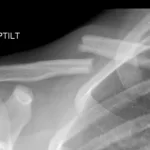The belief that a fetus’ heart rate can indicate its sex is a misconception. In reality, research shows minimal difference in the average beats per minute between male and female fetuses.
You may have encountered the notion that a baby’s heart rate can signal sex as early as the first trimester: above 140 bpm means a girl, below 140 bpm indicates a boy.

However, studies on this topic indicate that fetal heart rate is not a dependable method for determining your baby’s sex.
A fetal heartbeat commonly appears around week 6 of pregnancy. This early cardiac activity can be observed and measured on an ultrasound. Initial heart rates are relatively low—around 90 to 110 bpm—and rise gradationally each day.
This article reviews what research has revealed about the relationship between fetal heart rate and
The belief that a fetus’ heart rate can indicate its sex is a misconception. In reality, research shows minimal difference in the average beats per minute between male and female fetuses.
You may have encountered the notion that a baby’s heart rate can signal sex as early as the first trimester: above 140 bpm means a girl, below 140 bpm indicates a boy.
However, studies on this topic indicate that fetal heart rate is not a dependable method for determining your baby’s sex.
A fetal heartbeat commonly appears around week 6 of pregnancy. This early cardiac activity can be observed and measured on an ultrasound. Initial heart rates are relatively low—around 90 to 110 bpm—and rise gradationally each day.
This article reviews what research has revealed about the relationship between fetal heart rate and sex.

What research reveals about fetal heart rate and sex
Scientific investigations have not found meaningful differences between male and female fetal heart rates in early gestation.
- Several studies conclude that fetal heart rate is not a trustworthy early method to predict a baby’s sex.
- Other research similarly reported no notable disparity in female versus male fetal heart rates during the first trimester.
- One study using a cardiotocograph (cCTG) to evaluate fetal heart activity noted that male fetuses exhibited a slightly lower baseline heart rate and greater variability compared to females. Still, the absolute differences were minor and not thought to be clinically meaningful.
When is sex determined?
A baby’s sex is established at the moment the sperm fertilizes the egg. Sex is set at conception, long before pregnancy is often detected. Genitalia take time to form, but your child inherits either an X or a Y chromosome right away.
Typically, girls have an XX chromosomal pattern, and boys carry an XY pattern.
You might be surprised to learn that genital development is not immediate. For about four to six weeks after conception, male and female embryos appear quite similar. Distinctions begin to emerge between roughly 10 and 20 weeks.
What tests reliably determine a baby’s sex?
While fetal heart rate won’t accurately reveal your baby’s sex, several diagnostic options can tell you before birth. These include:
- cell-free DNA screening
- genetic diagnostic tests
- ultrasound
Cell-free DNA
Cell-free DNA blood tests have become more common in recent years. They can often be performed as early as about week 9 of pregnancy.
The primary purpose of these tests is to screen for certain genetic conditions rather than to determine sex.
Any potential findings from these screenings should be confirmed with further diagnostic testing.
Genetic testing
Later in pregnancy, your provider may offer invasive diagnostic options like chorionic villus sampling (CVS) or amniocentesis. These tests assess genetic conditions, and in doing so will also reveal your baby’s sex.
These diagnostic procedures are more accurate than cell-free DNA screening, but they are invasive and carry a small risk of miscarriage.
- CVS is usually performed between about weeks 10 and 13.
- An amniocentesis is typically carried out later, commonly between weeks 14 and 20.
Before opting for these tests solely to learn sex, consider the risks. They are generally reserved for situations such as when you:
- receive a positive or concerning cell-free DNA screen
- have had a chromosomal condition in a previous pregnancy
- are age 35 or older
- have a family history of a specific genetic disorder
The ultrasound
The most frequent time parents discover fetal sex is during the anatomy scan, usually between weeks 18 and 20. This ultrasound examines the baby’s anatomy and development from head to toe.
During this noninvasive scan, a technician applies gel to your abdomen and uses a probe to capture images of the fetus. The baby will undergo various measurements to assess growth. The technician will also evaluate organ systems, amniotic fluid levels, and the placenta.
You’ll typically be offered the choice to learn the baby’s sex and receive keepsake images. Often the technician can visualize the baby’s genital area clearly on screen and make a well-informed, evidence-based guess. Sometimes the baby’s position can make determining sex difficult.
Takeaway
Current evidence indicates that early-pregnancy heart rate is not a reliable marker for determining your baby’s sex. So continue enjoying the guesses from friends and family.
Before long, you should be able to confirm boy or girl at your anatomy ultrasound—or at the latest, when your baby is born.
Want pregnancy updates tailored to your due date? Sign up for our I’m Expecting newsletter.
























Leave a Reply
You must be logged in to post a comment.